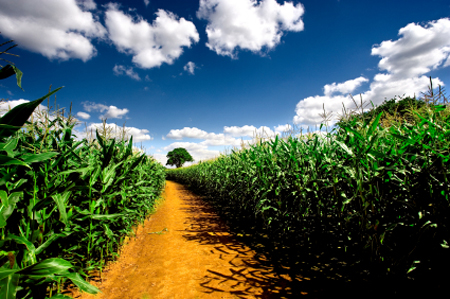Slow Crop Development Due to Cool Weather Likely Leaves Midwestern Fields at Risk
 (Agriculture.com) – Kids are back in school, the boat’s packed away, and Labor Day weekend is here, marking the unofficial end of summer in the U.S.
(Agriculture.com) – Kids are back in school, the boat’s packed away, and Labor Day weekend is here, marking the unofficial end of summer in the U.S.
That also means cooler weather is on the way, but when the first freeze of the season will happen varies not only from state to state but county to county.
While early freezes are generally a concern for growers, this year it’s slow crop progress that has some producers worried. Crops in parts of the northern Corn Belt are about 10 days behind their average pace of development, meaning it’s possible that plants will still be maturing when the first freeze hits, says Dennis Todey, the director of the Midwest Climate Hub, a division of the U.S. Department of Agriculture that assembles and disseminates information on crop and livestock production.
“The concern right now is the delay in corn development in the northern areas of the Corn Belt,” he says. “Even without an early freeze date, there’s some level of risk because of the late development. If you have a near-average freeze date, there could be some damage or growers could be harvesting corn higher in moisture than they’re wanting.”
The farther north and west one moves, the earlier the date of first frost or freeze, Todey said.
The first freeze below 28°F. – the temperature at which crop damage generally occurs – in North Dakota historically falls between September 21 and October 10, according to data from the Midwestern Regional Climate Center (MRCC).
In Iowa and northern Illinois, by contrast, the median first-freeze date falls from October 1 to October 31, depending on the county, according to the center.
The MRCC is a cooperative between the National Centers for Environmental Information (NCEI), a division of the National Oceanic and Atmospheric Administration (NOAA) and the Illinois State Water Survey. It’s a partner in a national climate service program that includes NCEI, five regional climate centers, and state climate offices, according to its website.
The Dakotas, Minnesota, Wisconsin, and some parts of northern Iowa face the biggest risk of late-season freeze damage due to slow crop development, Todey says. Some growers in areas where planting was delayed in the spring also should be concerned.
While the median date of first freezes is very general, a tool on the MRCC website allows growers to input their location, hybrid, and planting date, and it will tell them if their crop will be mature by the time of the first freeze.
Mark Beck, an agent at Sunrise Ag in Virginia, Illinois, said early in the season it looked like the corn would be ready for harvest in the last week of August, but the cool weather the past month has slowed maturity. He now expects harvest will start the week of September 11.
The cool weather also may hurt yields, Beck said.
“Corn harvest is usually two weeks behind the cutting of silage and seed corn,” he said. “Those two categories are getting done this week. Even irrigated seed corn yields are down 80% from normal. That seed corn just pollinated at the wrong time.”
Yields in southern Illinois will range from 60 to 260 bushels an acre, down 10% to 15% from the past two years, Beck said.
Terry Reilly, a senior commodity analyst at Futures International in Chicago, said he doesn’t expect any killing frosts or freezes soon, but growers are indeed concerned about the slow maturation of the crop.
Still, yields likely will be better than average in parts of the Midwest and Delta, and recent rains in the northwestern Corn Belt will boost production – all of which likely will offset any crop losses related to slow maturation and freeze damage, he said.
“We’ve lost some growing degree days so that potentially pushes the season out longer to where the potential frost and freeze could” affect crops, he said. “One forecaster was talking about very cold temperatures around September 6, but other than that, I haven’t heard anything. Things look fairly good otherwise, so other than the slow maturation, I don’t see a widespread problem.”




